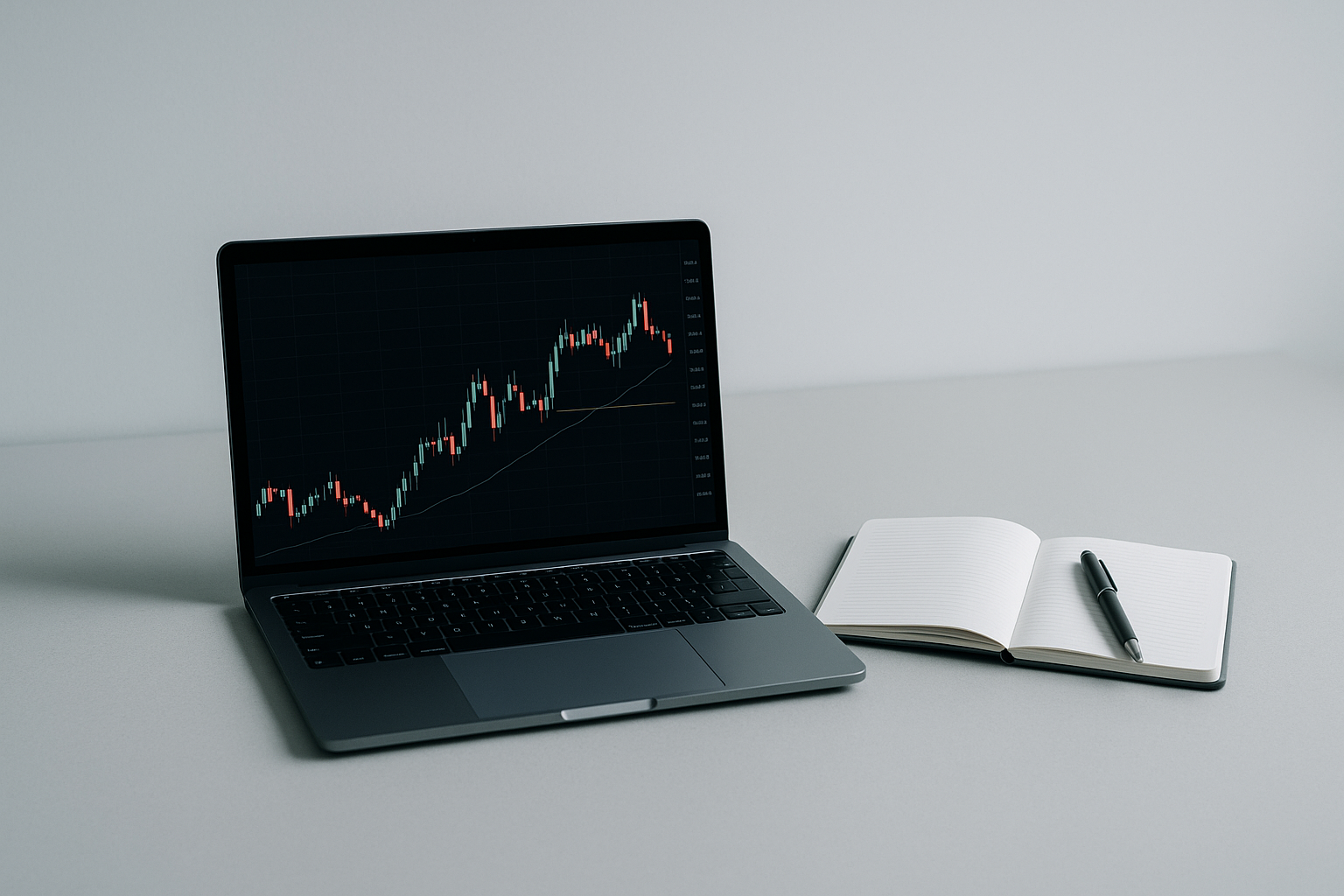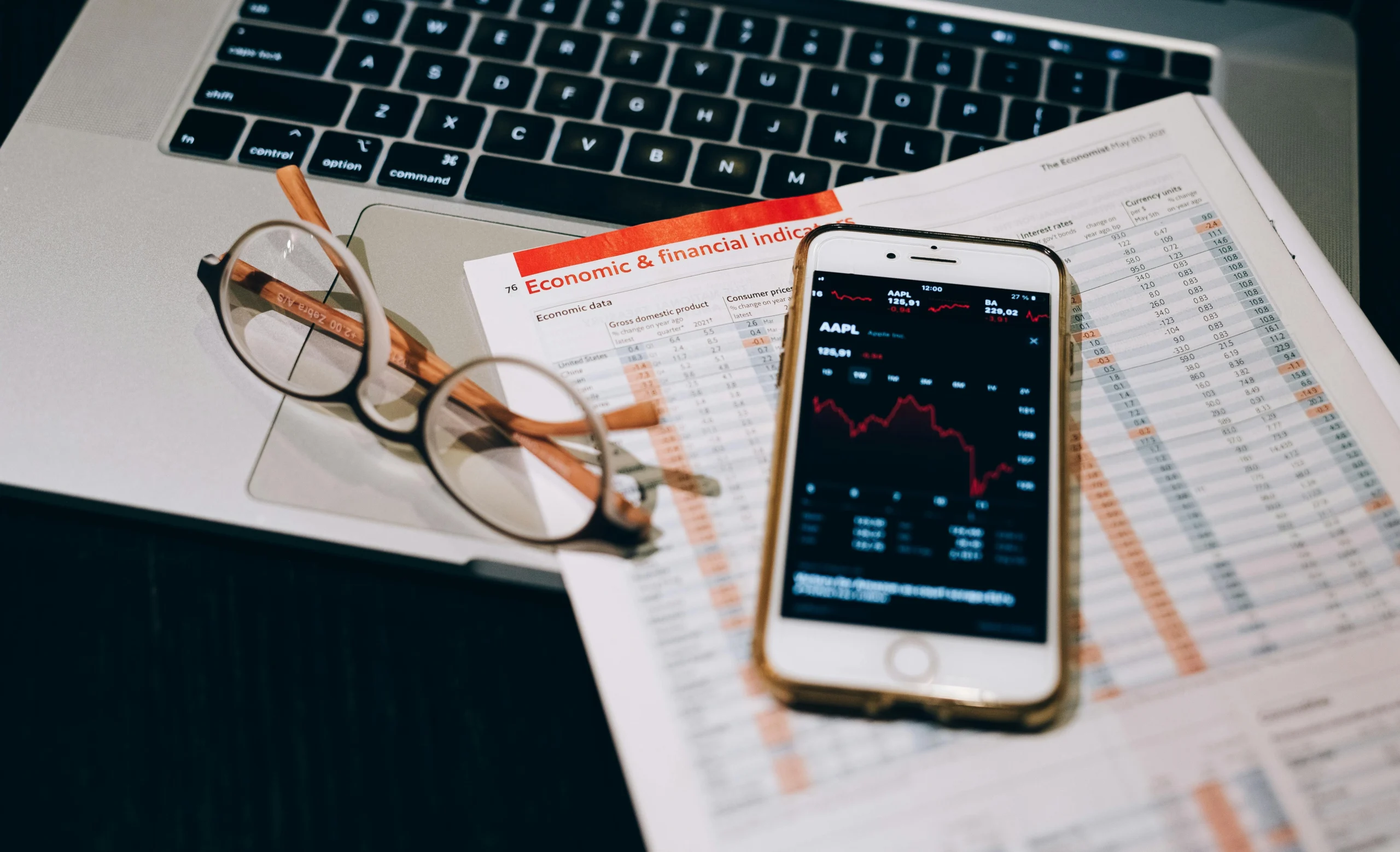Why the humble trading journal could be your edge in volatile markets

John E. Kaye
- Published
- Banking & Finance, Home

Once dismissed as little more than admin, trading journals are seeing renewed use among UK traders looking to sharpen discipline and reflect on past performance. With the rise of digital platforms and automated tools, these once manual records have evolved into data-driven dashboards, writes John E. Kaye
By definition, traders operate in a data-rich environment. Price feeds, news alerts and technical models offer minute-by-minute insights into market movements. But technology, for all its precision, cannot account for the human side of trading – the split-second decisions and the discipline required to follow a plan (or the emotions that often derail them).
That may explain why the humble trading journal, once associated with pen-and-paper note-taking, is enjoying renewed attention. Digital tools and online platforms have made journaling easier and more data-rich, but the principle remains unchanged: traders record and review every decision they’ve made to improve discipline and performance.
To understand why the practice remains so widely used, The European spoke to a variety of traders from across the UK who have made journaling part of their daily routine. Among them is John Matthews, a London equities trader with 12 years of experience.
“A journal is an exercise in honesty,” he told us. “When you write down the reason for every trade, you can’t hide from your own mistakes. It forces you to see the gap between what you thought you were doing and what you actually did.”
Matthews describes the process as simple but relentless. After each trade, he logs the instrument, the size of the position, the price points for entry and exit, the risk parameters, and, crucially, the reasoning behind it. Reviewing these entries at the end of the week is “the closest thing traders get to a performance review,” he said.
A journal, when maintained consistently, becomes a map of a trader’s own psychology. Patterns emerge: moments of overconfidence, hesitation, or impulsiveness. It is this behavioural insight, Matthews argues, that makes the habit so worthwhile.
“Looking at a month’s worth of these entries,” Matthews explains, “is like looking in a mirror. You see where you stuck to the plan and where emotion crept in. In this way, it’s data that really counts.”
Sophie Howard, who trades commodities, began journaling two years ago after a “short but objectively disastrous” period of erratic results. “I thought my strategy was solid but my journal told me otherwise,” she said. “It showed that I was taking positions on the back of headlines or social media chatter rather than analysis. Seeing that written down was a shock. It was also the turning point.”
Howard now treats her journal as an operational tool. She tracks each trade’s metrics and her mindset at the time. “If I was tired, distracted or chasing losses, I note it,” she explained. “When I review the entries, I can see exactly when I drifted off course, and why.”
Trading journals also enforce risk discipline. By recording the size of each position, the risk-reward ratio and the use of stop-losses, traders can see (often uncomfortably) where they ignored their own rules.
“It’s one thing to tell yourself you’ll never risk more than 2% of your account on a trade,” Matthews said. “It’s another thing to write down that you broke that rule three times last week. The journal doesn’t let you forget, however much you’d sometimes like to.”
Howard agrees. “Risk management sounds technical, but at its heart it’s about behaviour,” she told us. “The journal highlights the moments you lost discipline. Once you see them, you stop making the same mistakes.”
Over time, those who use them say journals act as strategy documents, helping to see which approaches work under specific conditions and which fail.
Marc Devereux, who trades European indices, credits his journal with improving both his returns and his confidence. “I always thought my exits were fine,” he told us this week. “But the journal showed me I was cutting winners too early because I didn’t trust my analysis. Fixing that habit made an immediate difference to my performance.”
Digital tools are now extending the usefulness of this habit, replacing the time-consuming task of manually logging trades with automated analysis. Platforms like Tradelytic, among others, allow traders to link their MT4 or MT5 accounts, automatically importing trades and compiling performance data. These dashboards break down profit and loss, and other factors including trading psychology, drawdowns and risk exposure, turning what was once a static record into a handy review tool that can be accessed anywhere.
“I still write down my reasoning in a notepad, because I’ve done it for years and habits die old,” he admitted. “But having the numbers automatically collated saves time and makes my end-of-week reviews faster. I can see the full picture in minutes.”
RECENT ARTICLES
-
 Managing cross-border risks in B2B e-commerce
Managing cross-border risks in B2B e-commerce -
 J.P. Morgan launches first tokenised money market fund on public blockchain
J.P. Morgan launches first tokenised money market fund on public blockchain -
 Aberdeen agrees to take over management of £1.5bn in closed-end funds from MFS
Aberdeen agrees to take over management of £1.5bn in closed-end funds from MFS -
 Enterprise asset management market forecast to more than double by 2035
Enterprise asset management market forecast to more than double by 2035 -
 EU Chamber records highest number of entries for 2025 China Sustainable Business Awards
EU Chamber records highest number of entries for 2025 China Sustainable Business Awards -
 Inside Liechtenstein’s strategy for a tighter, more demanding financial era
Inside Liechtenstein’s strategy for a tighter, more demanding financial era -
 ‘Stability, scale and strategy’: Christoph Reich on Liechtenstein’s evolving financial centre
‘Stability, scale and strategy’: Christoph Reich on Liechtenstein’s evolving financial centre -
 Bridging tradition and transformation: Brigitte Haas on leading Liechtenstein into a new era
Bridging tradition and transformation: Brigitte Haas on leading Liechtenstein into a new era -
 Liechtenstein in the Spotlight
Liechtenstein in the Spotlight -
 Fiduciary responsibility in the balance between stability and global dynamics
Fiduciary responsibility in the balance between stability and global dynamics -
 Neue Bank’s CEO on stability, discipline and long-term private banking
Neue Bank’s CEO on stability, discipline and long-term private banking -
 Research highlights rise of 'solopreneurs' as technology reshapes small business ownership
Research highlights rise of 'solopreneurs' as technology reshapes small business ownership -
 Philipp Kieber on legacy, leadership and continuity at Interadvice Anstalt
Philipp Kieber on legacy, leadership and continuity at Interadvice Anstalt -
 Building global-ready funds: how South African managers are scaling through offshore platforms
Building global-ready funds: how South African managers are scaling through offshore platforms -
 Global billionaire wealth hits record as relocation and inheritance accelerate, UBS finds
Global billionaire wealth hits record as relocation and inheritance accelerate, UBS finds -
 Human resources at the centre of organisational transformation
Human resources at the centre of organisational transformation -
 Liechtenstein lands AAA rating again as PM hails “exceptional stability”
Liechtenstein lands AAA rating again as PM hails “exceptional stability” -
 Lusaka Securities Exchange surges ahead on reform momentum
Lusaka Securities Exchange surges ahead on reform momentum -
 PROMEA leads with ESG, technology and trust in a changing Swiss market
PROMEA leads with ESG, technology and trust in a changing Swiss market -
 Why collective action matters for pensions and the planet
Why collective action matters for pensions and the planet -
 Structuring success with Moore Stephens Jersey
Structuring success with Moore Stephens Jersey -
 PIM Capital sets new standards in cross-jurisdiction fund solutions
PIM Capital sets new standards in cross-jurisdiction fund solutions -
 Innovation, advisory and growth: Banchile Inversiones in 2024
Innovation, advisory and growth: Banchile Inversiones in 2024 -
 Digitalization, financial inclusion, and a new era of banking services: Uzbekistan’s road to WTO membership
Digitalization, financial inclusion, and a new era of banking services: Uzbekistan’s road to WTO membership -
 Fermi America secures $350m in financing led by Macquarie Group
Fermi America secures $350m in financing led by Macquarie Group



























